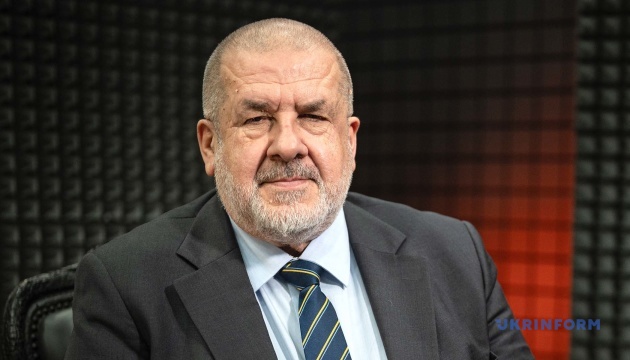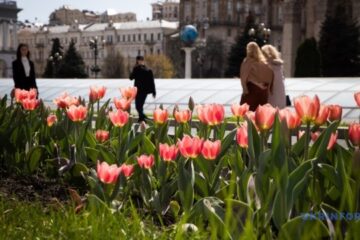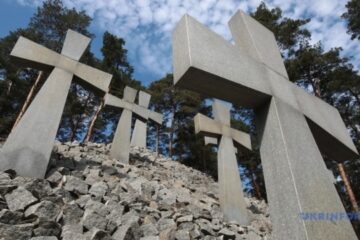The Autonomous Republic of Crimea has been under Russian occupation since it was illegally annexed in 2014. During this time, all of the world has realized and recognized that the occupation of sovereign Ukrainian territory has taken place, that this is in breach of not only the UN Charter, but as well of many international conventions and bilateral agreements. And it looked like as if everything had been determined: no one was going to recognize the occupation of Crimea, recognize Crimea as Russian. There are in place relevant resolutions of the UN General Assembly, decisions by international organizations, and ultimately there is the UN Charter, as well as the understanding that recognizing such actions would go against the principles and canons of international law. Then, unexpectedly, a few weeks ago, Crimea found itself in the spotlight when U.S. President Donald Trump entered the information space with his proposals to drive an end to the war in Ukraine.
One of the proposals that shocked many was to recognize Crimea as Russian territory. Moreover, it was not clear from the wording in the press who exactly is supposed to recognize this: the USA alone? Or Ukraine as well should recognize this? Or should this be recognized on a broad international level? This remained behind the scenes, but the proposal itself, such a vision, such an approach has caused a political storm.
And this is quite understandable, because such motions and proposals cannot go unnoticed. After all, for Ukraine, the Autonomous Republic of Crimea is part of our sovereign territory. For the Crimean Tatars, it is their homeland, their native land, they have no other. For the whole world, Crimea is now a hallmark of occupation and aggression. And for Russia, Crimea is a military base, an aircraft carrier to deploy nuclear weapons on, a place where the Russian population should be relocated from other territories of the Russian Federation and where the Ukrainian language, culture, the Crimean Tatar language and culture must be suppressed by all possible means, activists must be persecuted and their life under occupation made unbearable.
However, this will never be the case. The State of Ukraine bears responsibility for its citizens, for its territories, for its sovereignty. Therefore, when these proposals were made, we heard a very clear and unambiguous response from the Ukrainian leadership, the Mejlis of the Crimean Tatar People, from international actors, our European friends.
Here let’s try to figure out why this had happened at all, what Crimea is like today in the currently very difficult geopolitical situation, and what to do in the future. For this conversation we invited a man who has dedicated his whole life to the cause of protecting the rights of the Crimean Tatars: we are talking to Refat Chubarov, president of the Mejlis of the Crimean Tatar People ((the highest representative body of the Crimean Tatars, banned as “extremist” in Russia, and therefore in Crimea, since 2016).
[embedded content]
– So, why had this happened? Where are such ideas and proposals coming from?
– You are absolutely right saying that Crimea is the homeland to the Crimean Tatar people, their native land. And at the same time, Crimea is an inseparable part of the State of Ukraine. So, there are those who can (and only they are entitled to) decide the fate of this land. These are the indigenous Crimean Tatar people and the State of Ukraine.
Why had this happened? From my perspective, one of the factors behind such unacceptable proposals is a misperception that a ceasefire or peace can be achieved through territorial concessions by Ukraine. Meanwhile, neither the international community nor the major world powers have an idea about how to act in a situation where the aggressor is a permanent member of the UN Security Council, a country possessing one of the world’s biggest and most powerful arsenals of nuclear weapons. And in this situation, it may seem to someone that it is better to disregard the norms of international law, closing their eyes to the fact that this can entail absolute chaos, and instead of the power of law, the power of force will dominate the world, if we go for it.
So, when politicians from the inner circle of the President of the United States are publicly saying that Ukraine will have to cede it territory to Russia to end the war, this reveals their weakness, reluctance to make decisions as well as desire to achieve peace by any means and at whatever cost. I am uncertain whether they understand that this will be temporary, but this would amount to neglecting all other rights and the downfall of the UN Charter, neglecting the principle of territorial integrity, the sovereignty of the State of Ukraine, amount to disrespect for the rights of the indigenous Crimean Tatar people. I think that we are now going through a time of testing for such politicians. And it is only our, that is, Ukrainian, position – very clear, firm – that will prevent them from utterly destroying international law and letting things go to the point where the issue of territorial concessions by Ukraine will be discussed.
– You were among the first to come out with a statement that “Crimean Tatars decisively do not accept attempts to recognize Crimea as Russian territory. Neither de facto nor de jure, no matter who makes them.” You stated this literally right away. It is clear that we cannot even discuss such scenarios, and President Zelensky stated this in explicit terms. The only uncertainty is why the leaders of other countries take upon themselves the audacity to give away our lands, force or induce Ukraine into making territorial concessions in the 21st century.
Certainly, the Mejlis, the Crimean Tatars, and the Ukrainian leadership could not have responded differently, and we were met with complete solidarity. And how did the world respond?
– We have to tell that the absolute majority of member states of the United Nations support the territorial integrity of the State of Ukraine. And those countries that favor Russian expansioninst policies in one form or another are few and far between.
Since 2021, Ukraine has been able to pull together as many countries as possible within the Crimea Platform. This international forum allows us to systematically discuss our tactical methods and efforts with partners on an annual basis. And if we go beyond the borders of the European Union, we should praise Turkey as one of our most powerful neighbors that consistently and systematically support the territorial integrity of the State of Ukraine. Since 2014, right away from the first days of the seizure of Crimea and to this day, Turkey, despite maintaining certain relations with the Russian Federation, has been reaffirming its position on all opportune and necessary occasions. We see how disturbing this is for Moscow, but Turkey will remain unshakable in its position, because it is not only stemming from the unique history of Turkey and the closeness of the Crimean Tatar people to the Turkish people. Indeed, we share common pages of history. But Turkey’s foreign policy is based as well on the principles of friendly relations with its neighbors and non-violation of their territorial integrity. This was proven, among other things, by the events that began after February 2022, we felt and feel Turkey’s support in safeguarding the Ukrainian sovereignty.
We are working with the countries that have maintained a neutral position. Last year, we made trips to Indonesia, to several Arab countries. For us it is vital that the Muslim world share an unbiased view of this war, support Ukraine. And when we talk about the world’s support for Crimea and the Crimean Tatar people, we must appreciate that these issues should only be resolved in conjunction with the issues of support for Ukraine, and the issue of protecting the Crimean Tatar people is actually the issue of protecting the State of Ukraine. This is what we are trying to explain to world leaders.
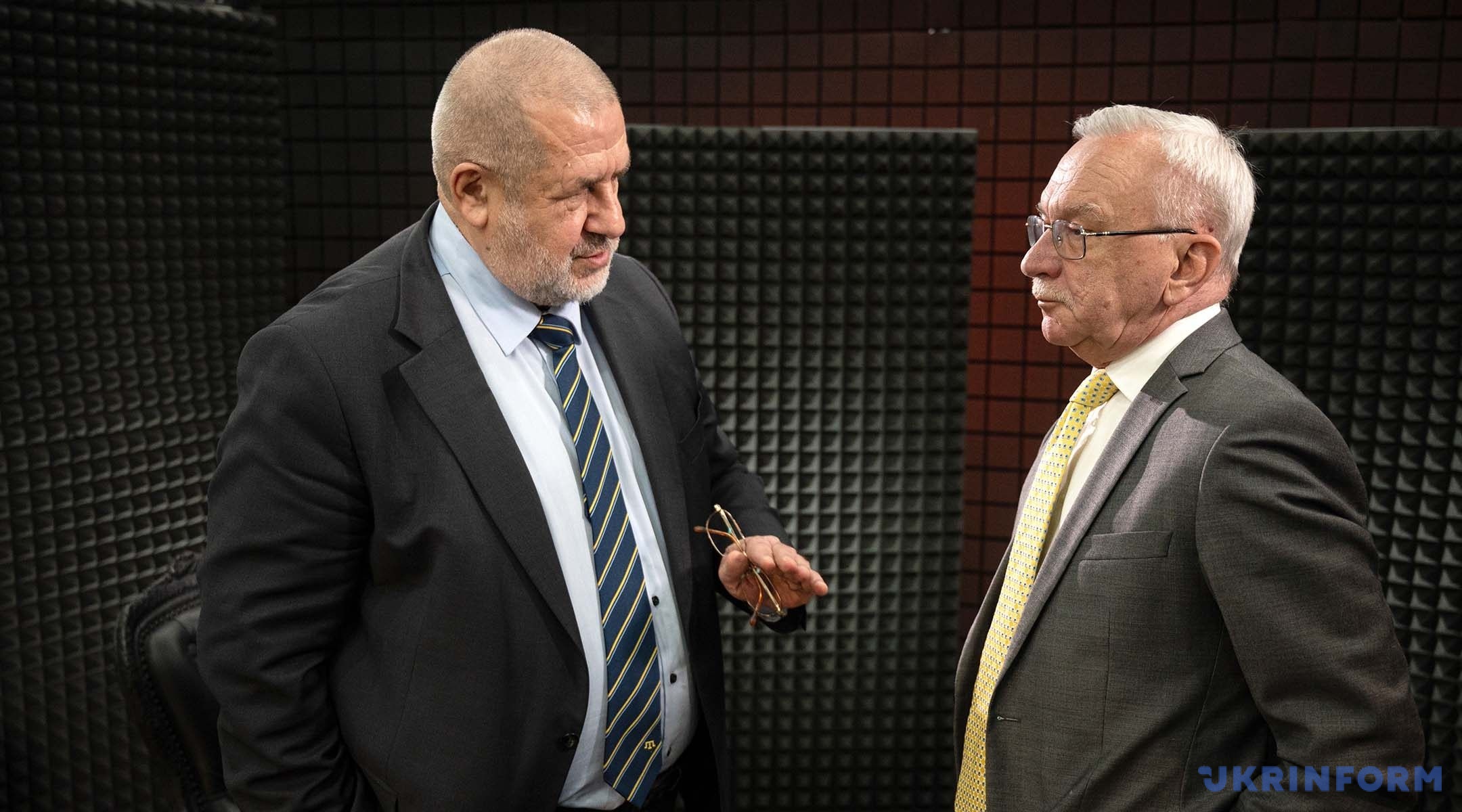
– Indeed, these issues were, are and will be inseparable. I will quote a statement that expresses the unequivocal position and response of all of Europe. Kaia Kallas, the High Representative of the European Union, said: “Crimea is Ukraine, for those who are occupied, it is very important that others do not recognize it as Russian (territory).” Kaia Kallas represents one of the Baltic countries that had been under occupation for half a century, but never considered itself part of the Soviet Union and eventually gained freedom. This is what makes such signals from European leaders very important for us.
The proposal voiced by people close to Trump, which you carefully called a test, looks more like a dangerous provocation. Because if such recognition actually happened and was put into effect unilaterally, it will then be difficult to imagine what would happen to NATO, for example, to transatlantic relations, how relations between the United States and Europe would develop further. These relations are already strained, but such an approach to the issue of the ownership of Crimea would be extremely destructive and complicate them further. Do you talk about this on other platforms?
– I reject the idea that the possibility of Ukraine conceding its territories will become a subject of negotiations. But I agree with you in that this is a provocation and a test, because the world is closely following our position. And if we, hypothetically, assume that this will be a subject of negotiations, then we can already say that we are completely destroying the security system, the interaction between national states that was being built so hard all the time after World War II. With all its shortcomings and with all the troubles, with all the local conflicts, this system has been saving the world from sliding into a global war. And now we see the ineffectiveness of the mechanisms for making and implementing decisions, the low effectiveness of the UN institutions, including particularly the Security Council, ineffectiveness of the Organization for Cooperation and Security in Europe (OSCE), where decisions are required to be made by consensus. But we must not let this be completely destroyed and thus open the gate to chaos. We are talking about this and at the same time providing examples and revealing the risks other countries may face if they neglect the principle of state sovereignty.
That being said, we are aiming to speak from the point of view that Ukraine’s sovereignty and territorial integrity must not be compromised, but it is as well very important to explain the threats that will arise where someone assumes it’s possible to behave this way, to give away someone else’s territory.
And most importantly, this is not going to prevent further expansioninst attempts and aggression. We are also talking about the fact that the occupiers, however well they are hiding this, actually need Crimea as a bridgehead for further expansion, most particularly into the southern flank of NATO, where Romania, Bulgaria, Turkey are located, and in Moscow, no one has yet abandoned the strategy of expansion towards warmer seas and straits.
– Let me remind you that a regular session of the European Parliament took place the other day. And speaking to that session, Ursula von der Leyen, the President of the European Commission, said literally what you just mentioned: a bad peace agreement will not stop Putin, he will continue. And a bad agreement is one that involves some territorial concessions.
I would like to quote Trump and then move on to a different topic. I have the impression that, speaking about Crimea, the US president, when operating the concepts of “de facto” and “de jure”, does not really realize that there is a big difference between principles and, as he believes, words and the realities. Trump is insisting that no one is demanding that Ukraine officially recognize Crimea as Russian. However, he believes that Crimea was lost back under Obama’s presidency, so forget it, continue fighting “de jure”, but “de facto” we will let Putin do what he wants there. What does “let Putin do what he wants there” mean? What is life like in Crimea under occupation?
– The occupation has been going on for twelve years now. And during this time, Russia has relocated approximately a million of its citizens to Crimea. We understand why this is being done. By these systematic persecutions and repressions, they are simultaneously intimidating the Crimean people in an attempt to make those who are disloyal to the occupiers leave the peninsula. Disloyal residents are absolutely unnecessary to those who are building the peninsula into a military base, an outpost of Russia. If you are building a military base, why then to have those who do not accept your being there? They have identified two categories of disloyal population in Crimea: these are the Crimean Tatars and ethnic Ukrainians. The extent of persecution of the Crimean Tatars can be exemplified by numbers: for now, the Crimean Tatars, while making up 13 percent of the overall Crimean population, make two thirds of the 235 political prisoners in Crimea, people who have been imprisoned on politically motivated charges. This suggests that the Crimean Tatars are the object of systematic persecution.
After February 2022, everything Ukrainian and the Ukrainians in Crimea have been absolutely demonized. Being a professional historian, I can compare this, for example, with the policy of hatred of the Jews in Nazi Germany, which eventually led to them being exterminated. Something similar is currently happening in Crimea, where people are scared of letting others get to know they are ethnic Ukrainians. They are scared of speaking Ukrainian, because Ukraine is an enemy, and the occupiers are fostering such sentiments.
In addition, they are trying to use the resources, primarily people, residents of Crimea, against the State of Ukraine to the maximum extent possible: conscription into the Russian army, forced mobilization. That is, everything that violates the Geneva Conventions and other international treaties, and these are the crimes that are committed on a daily basis there.
I would also like to remind you of the well-known Crimea Declaration, which was made public by the then U.S. Secretary of State Michael Pompeo in July 2018, that is, under President Trump’s presidency. It is very short, made up of just three paragraphs, but very well formulated. “Together with our allies, partners, and the international community, the United States rejects Russia’s attempt to annex Crimea and is committed to this policy until Ukraine’s territorial integrity is restored.” These words were spoken on behalf of the United States, and a copy of the Crimea Declaration was ceremonially presented to our leader Mustafa Dzhemilev, and it is now stored in the Mejlis of the Crimean Tatar People’s Library.
That said, here we must speak clearly in terms of international norms, treaties, States’ commitments, and however difficult it is, no matter what new threats and cataclysms Russia threatens with, the solution must be sought solely in the domain of international law, the rights of national states and peoples. Otherwise, we will not be able to put an end to either aggression or repressions in Crimea. Just imagine if it is possible to resolve the Crimean issue without bringing the situation to World War III. If you see this solution in giving away the Crimean Tatar people to Moscow for ultimate extermination, if the world, God forbid, sees that the solution is in giving away the Crimean Tatar people to death, then tomorrow this world might as well send any other people to the chopping block. Therefore, we must look for ways, opportunities and mechanisms to stop and
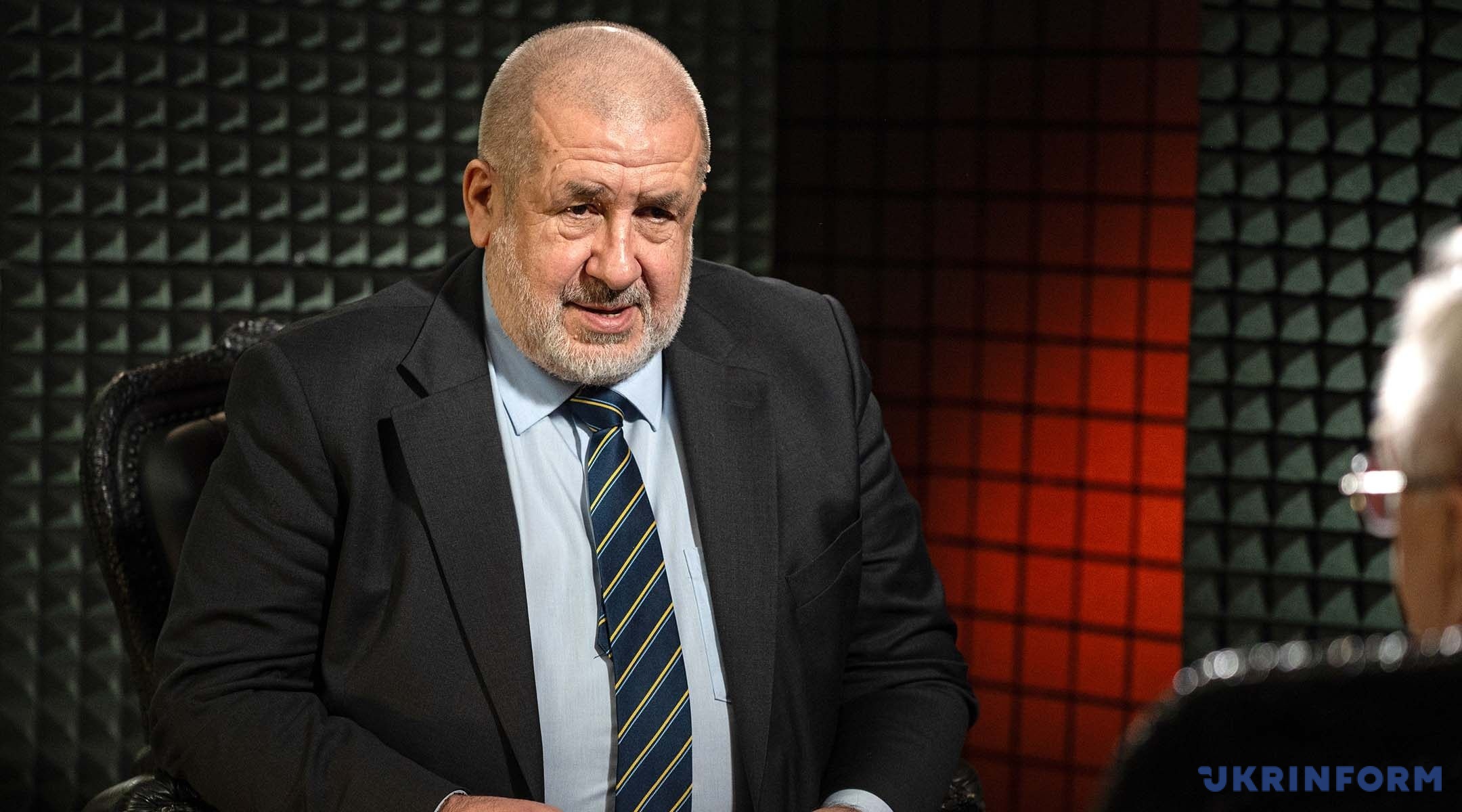
– Sacrifices will not lead to anything good. American lawmakers may not have foreseen such events, but they have legislatively recognized Crimea as part of Ukraine. So, when President Trump discusses the possibility of recognizing Crimea as Russian, he probably did not advise with his lawyers, because he cannot make a decision that would violate or circumvent a decision made by the U.S. Congress.
Returning to the situation with human rights infringements in the occupied territory, I would like to pass on to the topic of Crimea and international courts. Earlier this year, Ukraine received a very important decision: the European Court of Human Rights became the first international court to recognize that Russia occupied the Crimean Peninsula back in February 2014. This decision enshrines the absolute illegality of further steps made by the Russian Federation towards the secession of Crimea, starting with the sham referendum. Russia is the aggressor, and this court decision reaffirmed this. What did this decision of the European Court of Human Rights mean to you? How much did it help the Crimean Tatars in Crimea? How much is this contributing to our position?
– This decision is extremely important in that is sets specific dates. When the court was in session, Russia was doing everything it could to ensure that the Court decision enshrine that it had entered into a situation of effective control over Crimea after the referendum. Like, you see, this was people’s will; they came together, invited us to protect them, at that time they held a referendum, after which they turned to us for support. But the Court decided that Russia entered into effective control over Crimea beginning on February 27, the day when they seized the buildings of the Supreme Council of the Autonomous Republic of Crimea, the Council of Ministers of the Autonomous Republic of Crimea, and from that moment on, Russia is absolutely and solely responsible for everything that has been happening to this day and will happen until the liberation of Crimea, and it will be held accountable for this.
Obviously, this Court decision, for all its significance, does not change the situation in occupied Crimea, because Russia rejects it. But I am convinced that the torturers, individual judges, members of the Russian occupying administration are looking at this decision, because they understand that the punishment will be inevitable.
– This court decision will hopefully be followed by others, and it’s very soon when we will see concrete steps towards the creation of a special tribunal for Russia’s crime of aggression against Ukraine, where all of top leaders sitting in Moscow will receive the punishments they deserve.
In Russia, the Mejlis of the Crimean Tatar People is recognized as an illegal terrorist, extremist organization, whose activities are banned by law. How does the Mejlis conduct international activities now?
– This is one of our main activities. Indeed, after the occupation of Crimea, we relocated all the main work to Kyiv. We have our own office here, and some of the members of the Mejlis of the Crimean Tatar People, who cannot stay in Crimea now for various reasons, are here. Here are my deputies: Akhtem Chiygyoz spent three years in prison. Ilma Umerov as well was able to be released when he was already on way to a prison camp. Both of them were able to be exchanged with the mediation of Turkish President Recep Erdogan. Nariman Chelal, who was sentenced to 17 years in prison on terrorism and sabotage charges, was also released and returned to Ukraine. So, three vice-presidents of the Mejlis are here, as well as some other members of the Mejlis, who are likewise being prosecuted by Russian courts.
I too have been sentenced to six years of imprisonment in absentia, that is, the decision was made in default of appearance. This is an obvious attempt by the Russian authorities to complicate our movement around the world, they even tried to do it through Interpol. We are extremely grateful to the Ukrainian Interpol Bureau, the Ukrainian government for their involvement in mitigating attempts by Russian special services to cause us trouble. We are currently not experiencing any particular travel obstacles as all of the world understands that the Mejlis of the Crimean Tatar People is a representative body of the Crimean Tatar people who empowered it to protect their rights.
Thus, the Mejlis is an elected entity that represents the Crimean Tatar people. And in our current activities, I would single out two main areas among others. The first one, conducted here in Ukraine, is the resolution of a wide range of issues that will contribute to the development of Crimea after it is liberated from Russian occupation, we are working out ways for their resolution, and are resolving many of them now. The law on indigenous peoples in Ukraine has been adopted, we have made a package of decisions regarding the development of the Crimean Tatar language. We have finally transferred the Crimean Tatar alphabet back into the Latin alphabet, we have returned back to the Latin alphabet, which is very important for us, because this contributes to diaspora consolidation. We are training young professional in Ukrainian universities for work on managerial positions of various levels. So, these are the issues that relate to creating conditions for Crimea’s integration after its liberation from occupation, its integration back into the Ukrainian environment.
The second direction is focused externally, where we try to concentrate all our efforts, integrated with the potential of the Crimean Tatar diaspora, on supporting the State of Ukraine. For us, the liberation of Crimea amounts to the restoration of Ukraine’s territorial integrity. It is crucial that our partners realize that the Crimean Tatar and Ukrainian peoples, who are now living in one national state, have historically gone through shared trials. Here I am not talking about the depths of history from the time of Bohdan Khmelnytsky, but about the 20th century, when after the collapse of the Russian Empire we tried to exercise our right to self-determination, when a Kurultai (congress) was held in Crimea and the Crimean People’s Republic was declared, which immediately tried to establish ties with the Central Rada. That is, this all was taking place, but then Moscow brought disasters: the Holodomor, Sürgünlik (deportation).
The world, concurrently with recognizing the Holodomor as genocide, is now considering recognizing the Sürgünlik (deportation) of the Crimean Tatar people as genocide, and this is happening with support from the State of Ukraine. Earlier today, literally, I saw another draft statement of the Verkhovna Rada, which will hopefully be adopted on the eve of the 81st anniversary of the deportation, on the Day of Remembrance of the Victims of the Genocide of the Crimean Tatar People. The statement, again, contains an appeal to the parliaments and governments of countries urging that this crime committed by the Soviet regime is recognized as genocide by other countries.
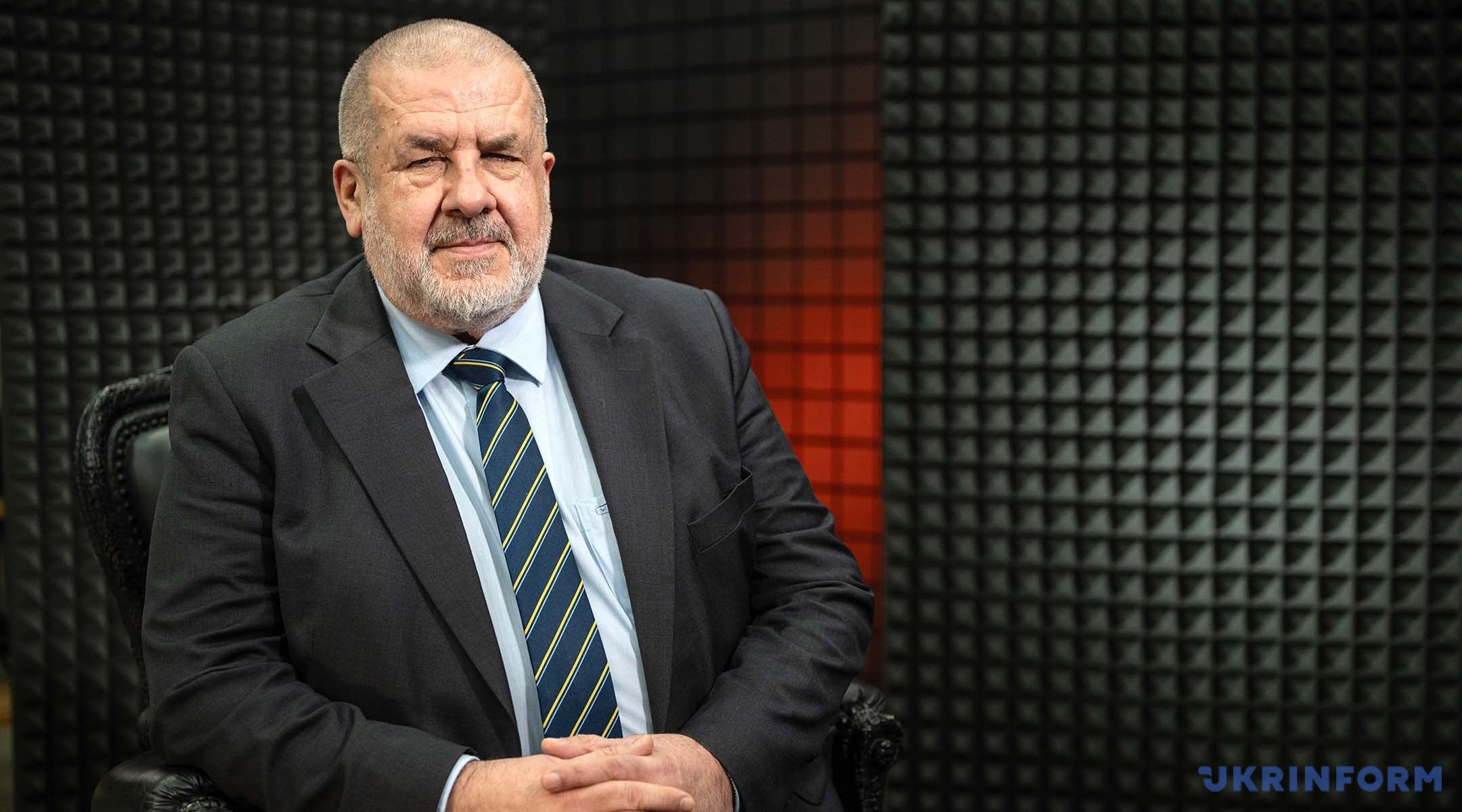
– The last thing I would like to say here is about the highly significant event that took place on April 21 at the UN headquarters. The Mejlis of the Crimean Tatar People received representative status at the UN Forum for Indigenous Peoples. The Mejlis, and you as its leader, have travelled a long path, you have something to be proud of and something to go with into the future. How difficult was this path, and how important is this event?
– This is the path travelled by the entire Mejlis of the Crimean Tatar People. And first of all, I must thank all our predecessors, because the national movement of the Crimean Tatars involves, without exaggeration, tens of thousands of members. And these are the people who restored the Kurultai of the Crimean Tatar People in June 1991, which immediately came in support of the aspirations of Ukraine, the Ukrainians, for independence at the time where there were still long months of Soviet rule ahead. This is a contribution made by my current colleagues to the recognition of the Mejlis of the Crimean Tatar People and of its achieved positions.
Indeed, at the UN Permanent Forum for Indigenous People, where representatives of indigenous peoples are sitting, representatives of the Mejlis of the Crimean Tatar People currently occupy a seat reserved for parliaments of indigenous peoples. And it is very good that at the UN Permanent Forum, the representative of the State of Ukraine is working as one with representatives of the Mejlis, working in a very harmonious manner, upholding similar goals and carrying out similar tasks. Not only does this inspire confidence, but provides the opportunity to achieve these goals. I have no doubt that, as soon as it becomes possible (because now as martial law is in effect, constitutional amendments are prohibited), the Constitution of Ukraine will definitely be amended with respect to the Autonomous Republic of Crimea. And finally, the rights of the indigenous Crimean Tatar people will be very clearly enshrined there, because an autonomy must have its own subject, a subject of self-determination. This wasn’t able to be done in 1991 at the time of Soviet rule, but now, I think, we will align everything with international law, the UN Declaration on the Rights of Indigenous Peoples, and most importantly, with the Ukrainian legislation on indigenous peoples.
– I thank you and wish you success as the president of the Mejlis of the Crimean Tatar people, wish success to all of us in our endeavors to restore territorial integrity of Ukraine. And I would like to once again repeat your call addressed to the Crimeans: “Get ready and be prepared!”.
– The truth will inevitably prevail, and everyone must be prepared for this. Evil cannot reign indefinitely in the world. This has never been the case and will never be the case.
Interviewed by Ihor Dolgov
Photo: Danylo Antonyuk, Ukrinform
This interview can be watched in full here
Source: Refat Chubarov, president, the Mejlis of the Crimean Tatar People

